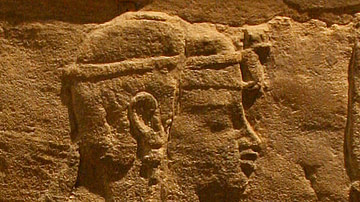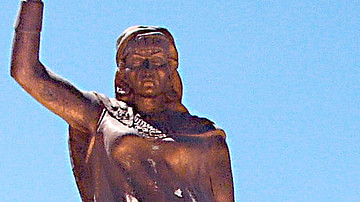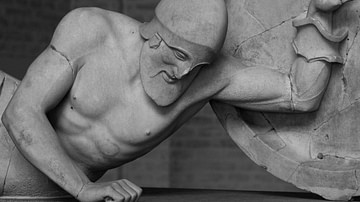Search Definitions
Browse Content (p. 172)

Definition
Ancient Greek Government
Ancient Greece witnessed a wide variety of government systems as people searched for the answers to such fundamental questions as who should rule and how? Should sovereignty lie in the rule of law, the constitution, officials, or the citizens...

Definition
The Candaces of Meroe
The Candaces of Meroe were the queens of the Kingdom of Kush who ruled from the city of Meroe c. 284 BCE-c. 314 CE - a number of whom ruled independently c. 170 BCE-c. 314 CE - in what is now Sudan. The title Candace is the Latinized version...

Definition
Attila the Hun
Attila the Hun (r. 434-453 CE) was the leader of the ancient nomadic people known as the Huns and ruler of the Hunnic Empire, which he established. His name means "Little Father" and, according to some historians, may not have been his birth...

Definition
Phoenicia
Phoenicia was an ancient civilization composed of independent city-states located along the coast of the Mediterranean Sea stretching through what is now Syria, Lebanon and northern Israel. The Phoenicians were a great maritime people, known...

Definition
Kahina
Kahina (7th century CE) was a Berber (Imazighen) warrior-queen and seer who led her people against the Arab Invasion of North Africa in the 7th century CE. She is also known as al-Kahina, Dihya al-Kahina, Dahlia, Daya, and Dahia-al-Kahina...

Definition
Flann Sinna
Flann Sinna (r. 879-916 CE) was a High King of Ireland from the Kingdom of Mide (Meath) and a member of the Clann Cholmain, a branch of the Southern Ui Neill dynasty. His name is pronounced “Flahn Shinna” and means “Flann of the Shannon”...

Definition
Ancient Greek Pottery
Greek pottery has four main types: Geometric, Corinthian, Athenian Black-figure, and Athenian red-figure pottery. Pottery vessels were made for everyday use such as the two-handled amphora for storage, the single-stem kylix cup for drinking...

Definition
Ancient Greek Sculpture
The sculpture of ancient Greece from 800 to 300 BCE took inspiration from Egyptian and Near Eastern monumental art, and evolved into a uniquely Greek vision of the art form. Greek artists captured the human form in a way never before seen...

Definition
Xerxes I
Xerxes I (l. 519-465, r. 486-465 BCE), also known as Xerxes the Great, was the king of the Persian Achaemenid Empire. His official title was Shahanshah which, though usually translated as `emperor', actually means `king of kings'. He is identified...

Definition
Roman Architecture
Roman architecture continued the legacy left by Greek architects and the established architectural orders, especially the Corinthian. The Romans were also innovators and they combined new construction techniques and materials with creative...